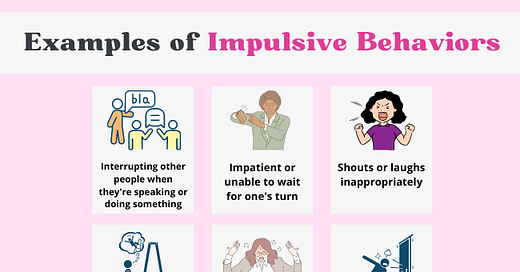Social scientists love to analyze political strategy. “Leader X wants to A. Rival Leader Y wants B. X knows Y wants B. Y knows X wants A. Therefore…”
Sometimes they even mathematically define totally hypothetical strategies in carefully contrived scenarios, which allows them to literally “solve for the equilibrium.” The rest of the time, they stay focused on the real world of politics — domestic and foreign. Yet either way, they assume that professional political actors simultaneously pursue their objectives craftily. While the results may well be disastrous from a Singerian “point of view of the universe,” every actor intelligently optimizes.
Now consider the standard story of why Hamas attacked Israel on October 7.
Israeli and Saudi Arabia were close to normalizing relations.
Iran, an enemy of both Israeli and Saudi Arabia, didn’t want this to happen.
Hamas, an ally of Iran, attacked Israel to make Israelis angry enough to strongly counterattack.
Seeing Jews attacking fellow Muslims and Arabs made Saudi Arabia too angry to normalize relations with Israel.
So Iran gets what it wants.
As the adage goes, “If you’re not confused, you don’t understand what’s going on.” Strategically speaking, the obvious Saudi reaction would be: “The very fact that Iran is trying to make us angry at Israel makes us angry at Iran. The very fact that our enemy is trying to prevent us from normalizing relations with Israel is precisely why we should redouble our efforts to normalize relations.” Iran, knowing this, would opt for another plan. Or maybe give up.
If you think these observations shows that I fail to understand human emotions, I must protest that I understand human emotions all too well. I’m not denying that the Iranian plan worked. I’m saying that the plan worked because political “strategy” is often deeply unstrategic. Anti-strategic. In a word, impulsive.
Impulse plainly rules much of the animal world. Are you a thief who wants to take out a watch dog? Just toss the dog some drugged meat. The dog won’t reason, “Wait a second. You’re a stranger. If I caught you trying to sneak into my yard, I would rip you to pieces. Why, then, would I gobble up whatever food you toss me? You’ve clearly got an agenda. Do you think I’m stupid?!” Instead, the dog will lunge for the meat, and your canine troubles will go soundly to sleep.
The same works for plenty of humans. Remember how Oksana Grigorieva got $15M out of Mel Gibson? She was his girlfriend and the mother of one of his kids. She goaded him over the phone and strategically recorded the conversations, until he infamously screamed, “I’ll put you in the rose garden.” Then she used her recordings to legally blackmail him. (In a final turnaround, Grigorieva lost almost all of the $15M because she rather impulsively violated her confidentiality agreement!)
Once you acknowledge these facts, you should be open to the possibility that even leaders of major countries could act impulsively. And if you peruse global politics, you’ll soon behold a world packed with impulsive leadership. Why on Earth did Hitler declare war on the U.S. after Pearl Harbor? As far as we know, the Japanese never even asked him to do so! “Hitler felt angry and got excited” is the best story we have. Why fight it?
The best attempt to save the “strategic politics” story appeals to nested games. “It’s not Saudi leaders who are acting impulsively,” you might insist. “No, Saudi leaders are strategically responding to the impulsive Saudi public.”
I freely concede that stories about nested games are occasionally correct. However:
Once you concede that most humans are prone to impulsive reactions, why imagine that national leaders are immune? They’re human, after all. And while national leaders do proverbially have plenty of “skin in the game,” they’re also endowed with an enormous stockpile of skin. Impulsive reactions normally kill pawns, not kings.
Leaders always have fawning apologists. If a leader was genuinely impulsive, you’d still expect their apologists to paint them as secretly strategically sagacious. So you should listen to such stories with much skepticism.
Even if the nested game story is totally correct, the strategic implications directly contradict almost all existing social science models. This is good news for the nested game theorists of the future, because there’s a pile of wrong-headed work to repair. But it’s bad news for the strategic politics scholars of the past, because they’ve spent their lives creating piles of wrong-headed work.
Surely humanity doesn’t trust its fate to the whims of childish leaders? Well, I’m not claiming that leaders are childish all the time. On occasion, all the major actors play their cards with care. All too often, however, impulse rules those who rule us.





Iran's plan worked because Saudi citizens became (predictably) angry at Israel and even the Saudi leadership can only disregard its citizens opinions to a certain extent. Of course both the Saudi and Israeli leadership realized what Iran was up to. But the Hamas massacre was SO gruesome and abhorrent that no government (including Israel's) could politically afford anything other than a strong military response. Iran/Hamas correctly realized that Israel (not Hamas) would be blamed by the 'Arab street' for deaths of ordinary Gazans being used as human shields. The point is, I don't think any of this is a sign of impulsiveness on the part of leaders but rather leaders feeling compelled to follow the emotional reactions of their citizens.
Excellent post. My favorite line: "And while national leaders do proverbially have plenty of “skin in the game,” they’re also endowed with an enormous stockpile of skin. Impulsive reactions normally kill pawns, not kings."